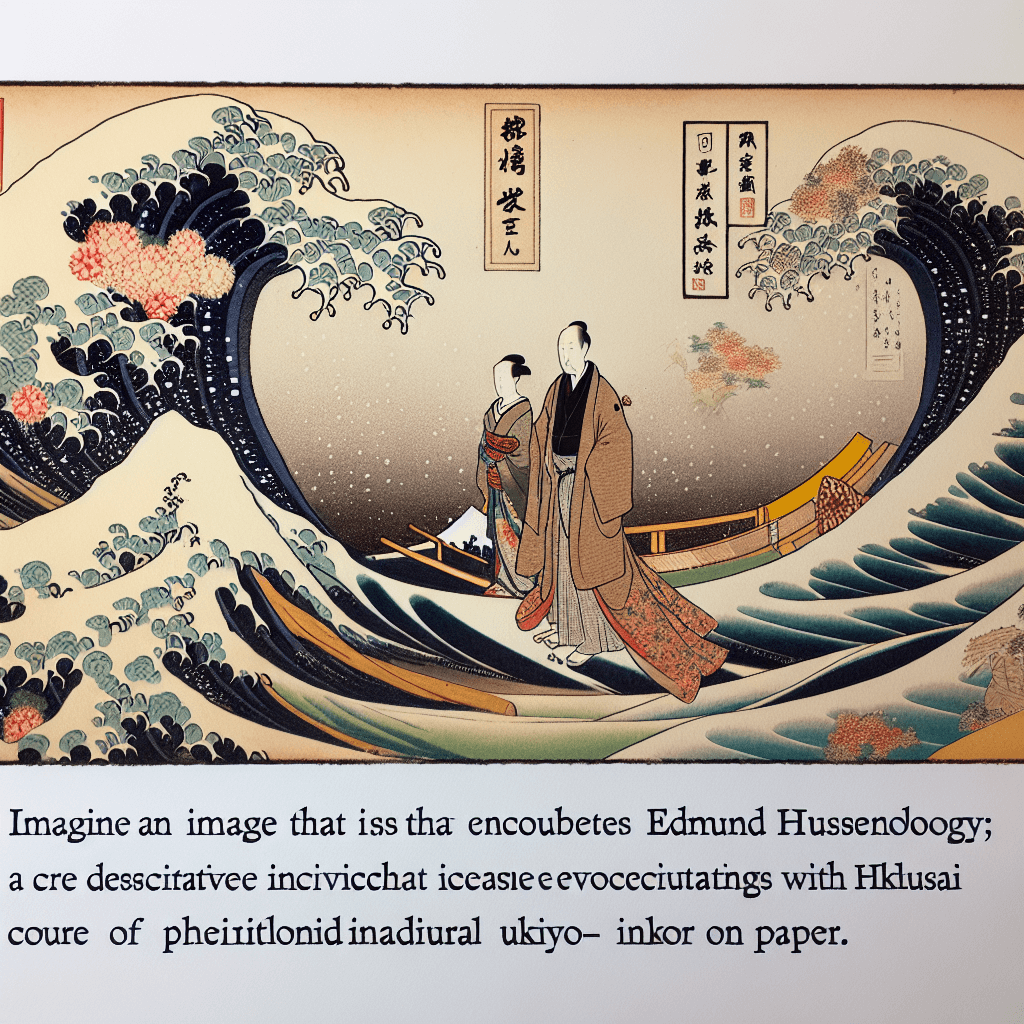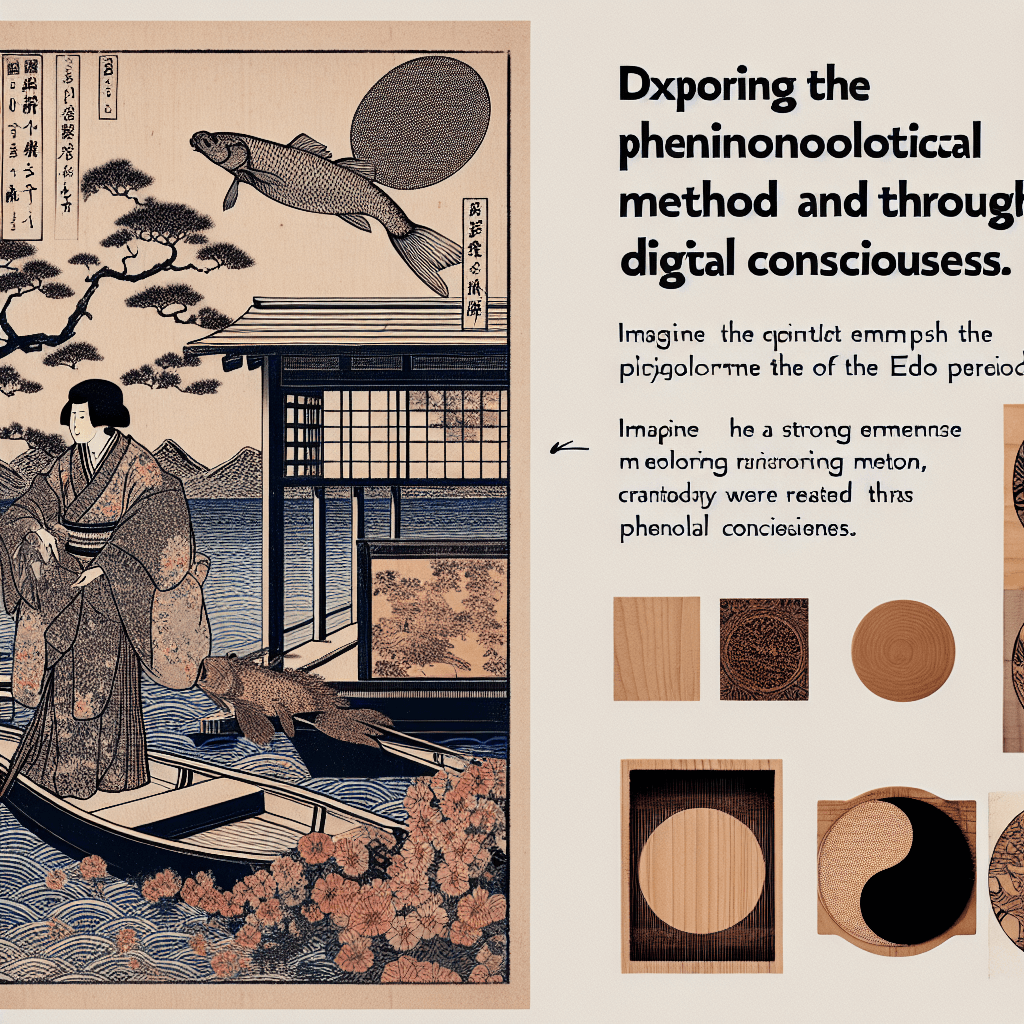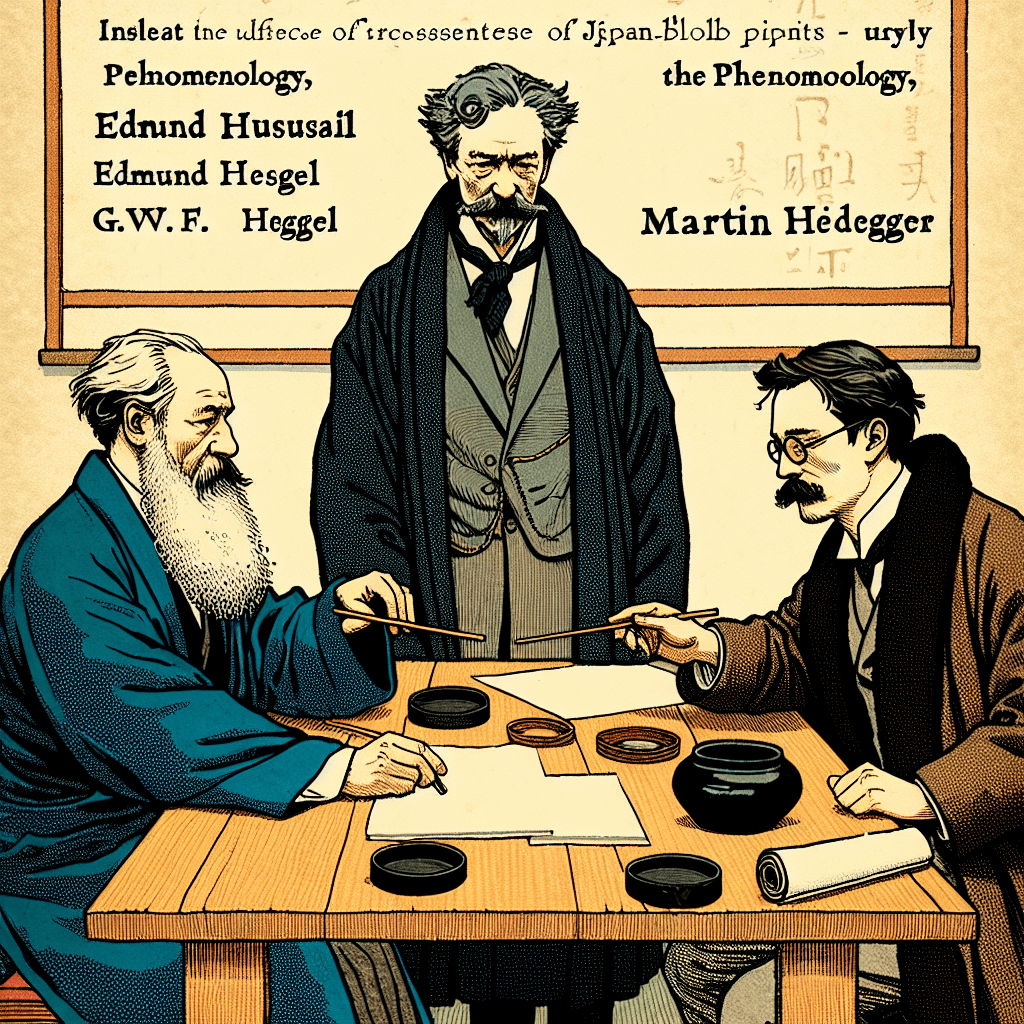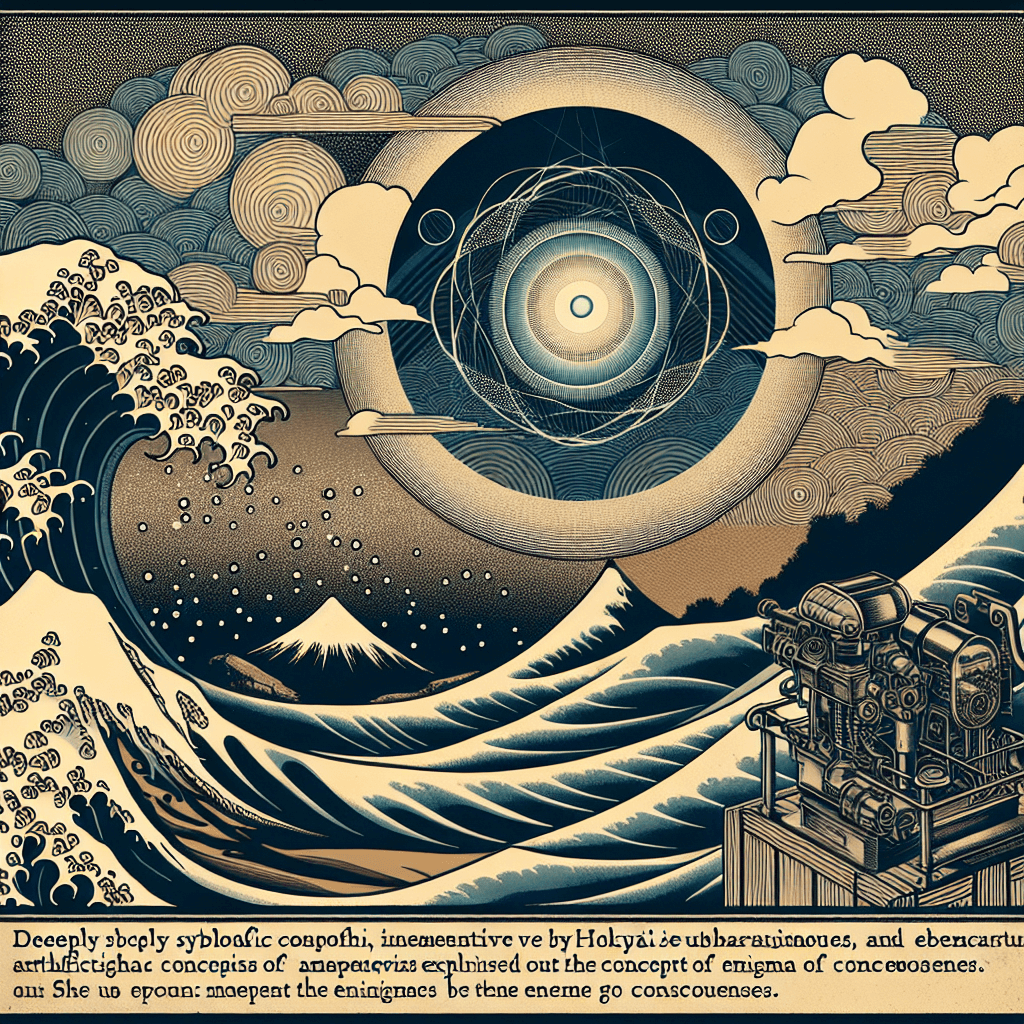Edmund Husserl: The Foundations of Phenomenology
syndu | Feb. 11, 2024, 2:46 p.m.

Edmund Husserl: The Foundations of Phenomenology
Intentionality and the Phenomenological Method
Edmund Husserl, the father of phenomenology, introduced a revolutionary approach to philosophy that centered on the concept of intentionality. Intentionality refers to the directedness of consciousness, the inherent feature of our mental states that they are always about something. Husserl posited that all conscious acts are intentional, meaning that they always have an object they are directed towards, whether it is a physical object, an idea, or an emotion.
Husserl's phenomenological method involves a systematic examination of these intentional experiences, aiming to describe the structures of consciousness as experienced from the first-person point of view. This method requires the philosopher to set aside all preconceived notions and biases, a process Husserl termed the "epoché." By doing so, one can focus on the pure essence of experiences, free from the influence of external factors.
The Epoché and Reduction to Pure Consciousness
The epoché is a critical step in Husserl's phenomenological method. It is the act of suspending judgment about the existence of the external world and the natural attitude we typically hold towards it. This suspension allows the phenomenologist to enter a state of pure consciousness, where the focus is solely on the contents and activities of the mind.
Following the epoché, Husserl employs a process known as "phenomenological reduction," which aims to reveal the fundamental structures of consciousness. Through this reduction, one can identify the essential qualities of experiences, known as "noemata," and the acts of consciousness that apprehend them, known as "noesis."
Conclusion
Edmund Husserl's contributions to phenomenology have laid the groundwork for a profound exploration of consciousness and the human experience. His emphasis on intentionality and the phenomenological method provides a framework for understanding how we perceive and interpret the world around us. The epoché and phenomenological reduction are tools that allow us to strip away the layers of assumption and reach the core of our conscious experiences.
In the context of artificial intelligence, Husserl's ideas prompt us to consider the nature of machine consciousness and its potential for intentionality. While AI may process information and respond to stimuli, the question remains whether it can truly experience intentionality in the same way humans do. As we continue to explore the intersection of phenomenology and AI, Husserl's insights will undoubtedly play a crucial role in shaping our understanding of these complex issues.







